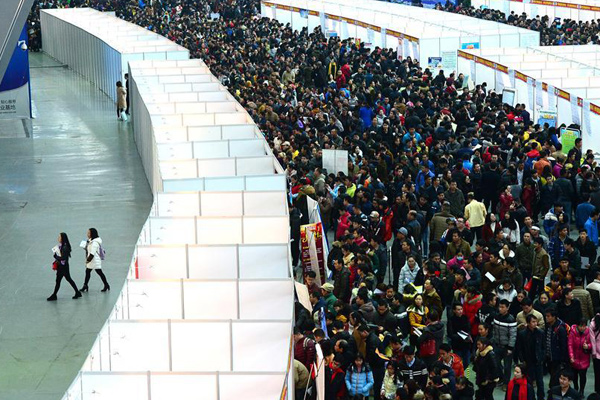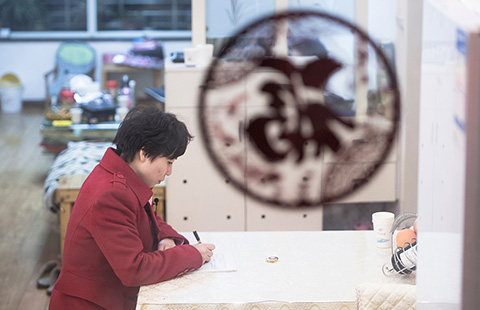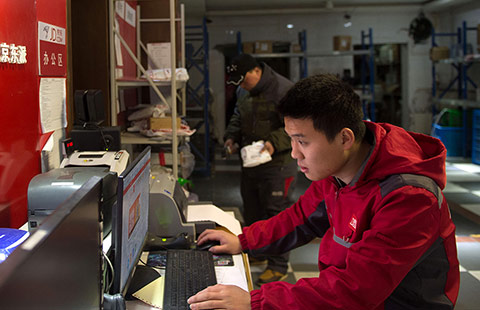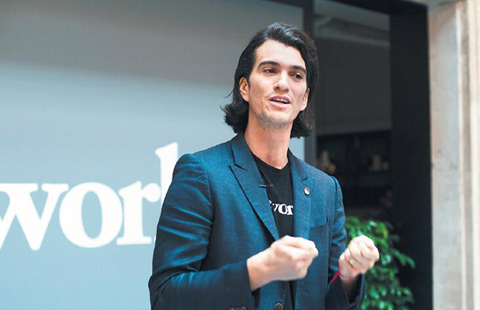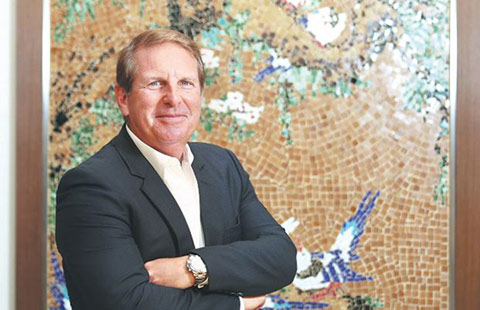Progress expected on new bank
Developing economies may benefit most from funding
 |
|
Visitors ask about wine from South Africa at a trade show of South African goods in Beijing. The BRICS bank is expected to enhance cooperation among developing economies and facilitate inter-BRICS trade. Zhao Bing / Xinhua |
Substantial progress in establishing a BRICS development bank is just around the corner, as officials and analysts expect the proposed institution to strengthen ties between the five nations.
Representatives from the BRICS countries - Brazil, Russia, India, China and South Africa - discussed the creation of the development bank at the Fifth BRICS Summit in Durban, South Africa, on Tuesday and Wednesday.
"The finance ministers of the five countries have agreed that setting up the development bank is feasible and reasonable," Finance Minister Lou Jiwei said on Tuesday after a meeting among finance ministers from BRICS countries ahead of the summit.
Experts said that as a key complement to existing multilateral financial institutions, the new development bank will be conducive to inter-BRICS cooperation and the steady growth and development of the world economy.
As emerging forces on the global economic arena, the BRICS nations have enjoyed increasing shares in the world's combined GDP and trade volume, and they have started to play a more important role in improving global governance. But many believe they lack an institutional platform for cooperation.
"The BRICS nations are like scattered pearls that haven't been put on a string," said Zhao Jinping, a senior researcher with the Development Research Center of the State Council.
The bank can provide developing countries with financing support and policy consultation in areas of infrastructure investment, trade facilitation and poverty reduction, Zhao said, adding that the establishment of a free trade zone could be a plan.
Yuan Gangming, a world economy researcher with Tsinghua University, said that the BRICS bank would help stabilize the financial market by funding infrastructure construction in developing nations and smoothing possible capital market fluctuations that result from government debt issuances.
It's not being created as a counterweight to development banks such as the World Bank, said Jeremy Stevens, Standard Bank's Beijing-based economist. Instead, it would be "an auxiliary funding institution, albeit more aligned to the BRICS development agenda", Stevens said.
The success of the bank will depend on specialization, rather than creating overlapping agendas with other development financing institutions and state policy banks in BRICS countries, including the Brazil Development Bank, China Development Bank and Export-Import Bank of India, he said.
Mikhail Margelov, Russian President Vladimir Putin's envoy to Africa, said on March 15 that an agreement on the amount of resources to be committed isn't likely and Russia favors capping each side's contribution at $10 billion to begin with, Bloomberg News reported.
"(It's) better we start with something small and beautiful. ... Our strategic goal is to transform the aging international financial architecture."
The bank would then aim to borrow from global capital markets by issuing bonds, thus becoming a non-resident borrower in the US, Europe, Hong Kong and elsewhere, according to Standard Bank.
"It is inevitable that the contributions will pressure some members more than others and associated risks may vary, as will the fund's decision-making processes. Unless pragmatically managed, political strains similar to those within the IMF may emerge," said Stevens.
With a much smaller pool of economies acting as guarantors, the BRICS bank is likely to have less favorable funding costs than the World Bank as well as individual BRICS state policy banks, he added.
"The establishment of the BRICS bank needs to undergo a process. It won't be completed within a short period of time," Zhao said.
Xinhua contributed to this story.
wangxiaotian@ chinadaily.com.cn




